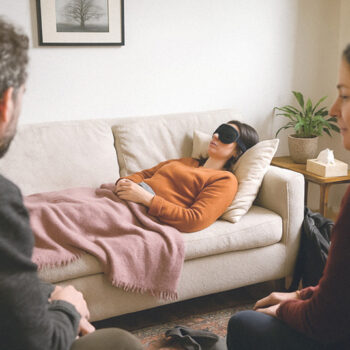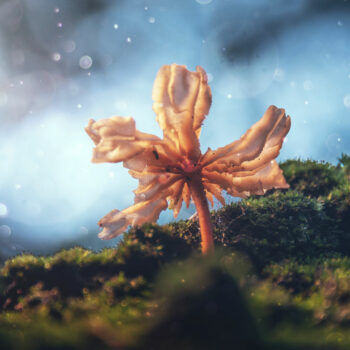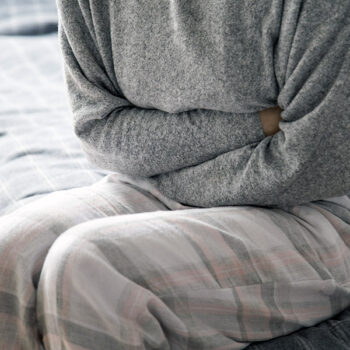Psilocybin and depression
Complex and debilitating, depression is a difficult illness to treat. However, psilocybin holds the promise of a revolutionary treatment. This article examines the effects of mushrooms on individuals with depression.

Depression affects approximately 3.8% of the global population, including 5% of adults. Among them, 4% of men and 6% of women are currently experiencing a prolonged depressive episode. Psilocybin mushrooms are thus of significant mental health interest for these individuals. While antidepressants and psychotherapy are effective for many, a substantial portion remains stuck in a depressive state without a solution. According to numerous studies, psilocybin could offer a new approach to treating depression.
However, using psychedelics to address mental health issues raises questions. Let’s explore how it works and whether it is truly effective.
Psilocybin for Depression: A Miracle Treatment?
Various therapies exist, but their success varies depending on the severity of the illness and individual factors. The idea of treating depression with psychedelics is appealing: could it be effective, rapid, and potent?
Notable Effects on Symptoms
Psilocybin is not legally recognized as a depression treatment. However, it shows potential similarities.
Neuroscientist and psychiatrist Lucie Berkovitch stated in an INSERM interview that “based on available data, we observe a disappearance of symptoms in 30 to 70% of depressed individuals, particularly those with treatment-resistant depression, which is significant.“
The Science of Mushrooms Against Depression
Several professionals agree that psilocybin could potentially be a treatment for depression. Studies have shown that a single dose of hallucinogenic mushrooms can have effects comparable to an antidepressant treatment. Results indicated that this single dose could provide benefits lasting from 6 weeks to 6 months.
Here is a summary of several studies with the observed results. These studies use the MADRS or BDI systems to assess symptom severity.
Doses (MADRS)
This study examines the impact of psilocybin dosage on depression.
| Patient Groups | Dose | Initial Depression Score (MADRS) | Symptom Reduction |
| 79 patients | 25 mg | 31.9 | -12 points |
| 75 patients | 10 mg | 33 | -7.9 points |
| 79 patients | 1 mg | 32.7 | -5.4 points |
Placebo (MADRS)
This protocol compares the effect of psilocybin to a placebo.
| Patient Groups | Dose | Initial Depression Score (MADRS) | Symptom Reduction |
| 26 patients | Psilocybin (0.215 mg/kg) | 24.3 | -14.4 points |
| 26 patients | Placebo | 24.1 | -4 points |
Duration of Effects (BDI)
Another scientific study investigates the duration of the effects of psychedelic mushrooms.
| Patient Groups | Dose (Psilocybin) | Depression Score (BDI) | Before Intake | At 1 Week | At 2 Weeks | At 3 Weeks | At 3 Months | At 6 Months |
| 19 patients | 25 mg | 19.3 | 8.5 | 8.5 | 9.2 | 12.4 | 12.5 |
How Does Psilocybin Affect Depression?
Psychedelic substances are known to be psychoactive, meaning they alter cognitive function. They produce hallucinations, euphoria, and deep introspection, known as the psychedelic experience or “trip”. More importantly, they change brain chemistry.
The Chemistry of Mood and Emotions
In the human brain, neurons are activated by various chemicals called neurotransmitters. One such neurotransmitter, serotonin, is involved in regulating mood and emotions.
Depressed people often have low serotonin levels, leading to reduced neural activity in the frontal cortex. Serotonin levels are crucial in managing depressive symptoms. Some antidepressants, such as SSRIs (Prozac, Seroplex), aim to balance brain function by targeting serotonin.
A Reset for the Nervous System
When consuming psilocybin mushrooms, the psychedelic compound converts to psilocin. Psilocin mimics serotonin upon interacting with neurons. The central nervous system “believes” it has serotonin and activates other neurotransmitters to reset the system.
Current scientific research suggests that stimulating the nervous system acts as a trigger to return it to “normal mode.” This process can be likened to restarting a phone or computer to fix issues, potentially alleviating some depressive symptoms.
How to Cure Depression?
There is no absolute answer to this question. Doctors often agree that treating depression requires a combination of medication and therapy.
Psilocybin specialists hold a similar view. Taking psychedelic mushrooms does not cure but creates a favourable environment for healing.
Ongoing Support to Reduce Symptoms
The neurochemical effect of the psychedelic experience makes the brain more receptive to introspection, a consequence of neuroplasticity induced by psilocybin. In the weeks following ingestion, fear responses from the limbic system are reduced, making it easier to overcome mental blocks. This period is ideal for deep work with a therapist or engaging in introspective practices (meditation, yoga, breathing exercises, listening to inspiring music, writing, etc.).
Psilocybin and Alcohol Addiction
In Europe, one in twelve people suffer from alcohol addiction. Alcoholism is often highlighted, but it is frequently overlooked that those affected are also dealing with depression.
According to several studies, psilocybin also produces very favourable effects against alcoholism.
Interactions Between Antidepressants and Magic Mushrooms
It is sometimes said that magic mushrooms are incompatible with antidepressant medications. In reality, this is not about incompatibility. Antidepressants can diminish the effects of psychedelics.
Some individuals prefer to gradually reduce their medication dosage before a psychedelic experience to avoid interactions, while others accept the reduced effect to continue their treatment.
In any case, only medical professionals are qualified to advise their patients based on prescribed doses and evaluate potential risks.
What is the Best Psilocybin-Assisted Therapy for Depressed people?
Psilocybin Treatment
Introducing a psilocybin treatment for depression would revolutionise pharmaceutical psychiatry. The exact form this treatment would take is unpredictable. Possibilities include dietary supplements, synthetic psilocybin capsules, hospitalisation, or assisted therapy.
Currently, this is not yet a reality. Therefore, people explore alternative approaches. One thing is certain: relaxation and supervision are crucial to the success of this approach. Legalisation appears to be the best way to minimise risks and maximise effects.
Unique but Inaccessible Therapeutic Support
Psilocybin-assisted therapy is legal in Oregon and Switzerland. It involves taking a dose of magic mushrooms in the presence of a psychologist, who supervises the experience, asks questions to initiate introspection, and conducts therapeutic work. Several psychotherapy sessions follow the experience to integrate changes and insights. This is generally the protocol in clinical trials.
These assisted therapies have the drawback of being expensive and accessible to only a small number of people.
Retreats as a Legal Alternative
Another approach is trying a legal psilocybin retreat for depression. These short stays are not considered therapeutic sessions but rather wellness retreats. They do not offer treatment, yet individuals seeking care can still participate and continue their therapy independently.
Psychedelic retreats are legal in the Netherlands, providing easy access to psilocybin in the form of magic truffles. They also include preparation and integration sessions to explore sensitive topics and identify areas for improvement.
Enjoy a 100% legal psilocybin experience in the Netherlands
Preparation and retreat in English
Enjoy a legal & intense experience in the Netherlands
A psychedelic retreat designed for best results. Small group, one-to-one preparation, experimented facilitators, 1 year monthly integration & awesome place !
Join us

Towards a Future Without Depression?
Depression is a relentless illness that can leave one feeling helpless. It affects crucial cognitive functions such as self-esteem, motivation, and the ability to plan for the future. It causes rumination, loss of energy, and lack of desire, ultimately impacting mood, sleep, daily life, and social relationships.
Escaping depression can seem impossible due to the lack of strength to do so. This is true for all types of depression: seasonal, post-partum, or severe. Being depressed is a constant struggle, filled with guilt and self-devaluation.
For those suffering from depression, the potential of psilocybin is a significant point of interest. It offers hope for escaping an apparently hopeless situation. The determination of researchers will undoubtedly shape the future of magic mushrooms and their potential legalisation.
Psilocybin and depression FAQ
Does psilocybin cure depression?
Psilocybin does not cure depression but can help reduce its symptoms. It shows notable improvement for severe depression that is resistant to antidepressants.
How can one overcome depression?
The first step is to seek help. There are several simple ways to take control of the illness. Talking to close ones, support groups, a psychologist, or a doctor is crucial for starting the process.
Additionally, engaging in simple activities can help regain some courage: walking, reading, cycling, board games, arts and crafts, singing, caring for a pet, or meditation. It is a long battle, but it is possible to overcome depression at any age.
Image from shurkin_son on Freepik
Last updated on 6 October 2025





